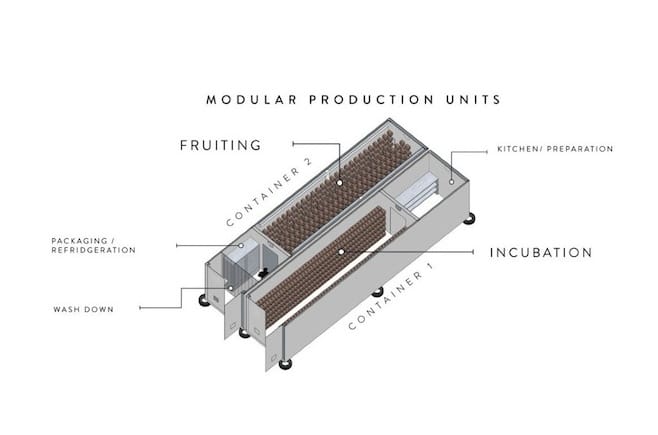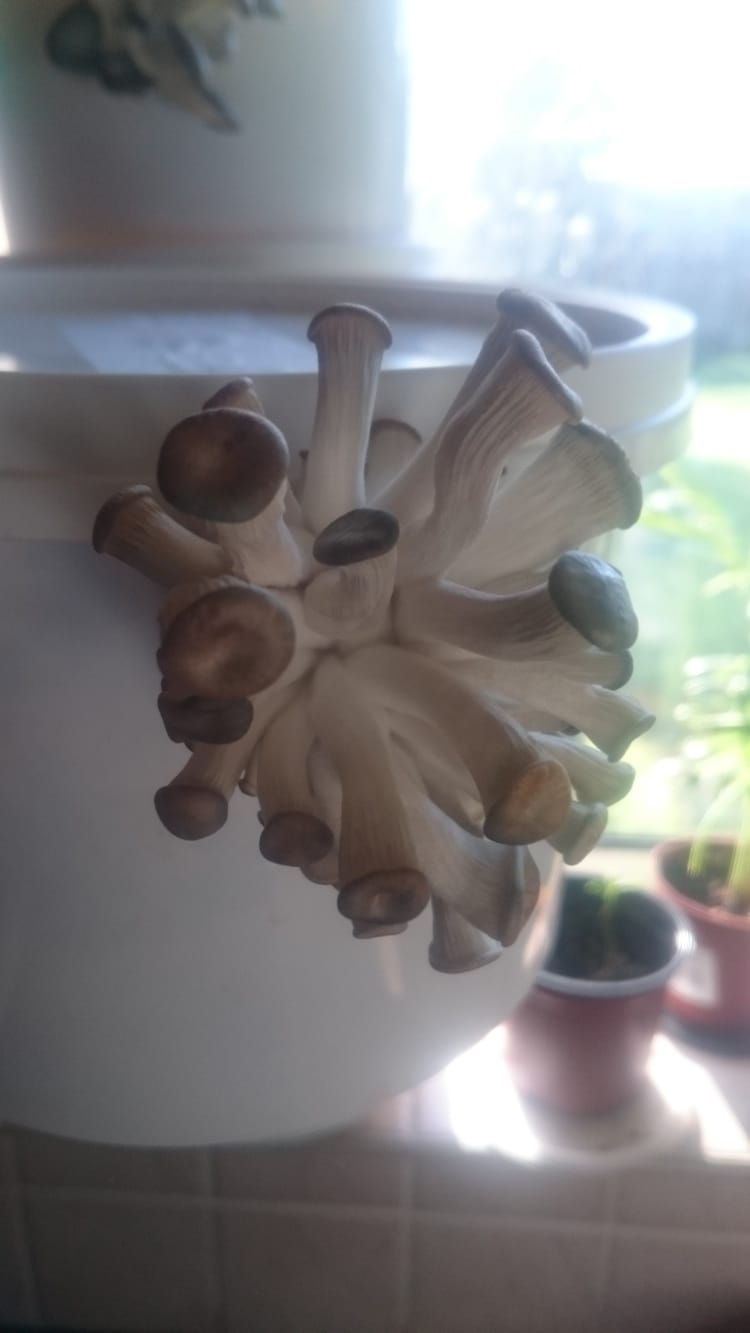Things To Do: Become an avant-garde performer, contemplate a pilot, consider getting a tattoo
Our latest recommendations, and community noticeboard listings.
Just when you thought you had all the coffee-related paraphernalia that you could need, Andrew Douglas of Urban Farm has plans to launch a new kit to help you grow food on your grounds.

So you can grind it, filter it, brew it. But can you grow mushrooms on it?
Just when you thought you had all the coffee-related paraphernalia that you could possibly need, Andrew Douglas has plans to launch a new kit for those who want to squeeze more out of their grounds.
The Urban Oyster kits are the latest brainchild from Douglas, who is founder and CEO of the Urban Farm Project. So far, he has put together the urban farm atop Belvedere College, AquaLab, and a wealth of other projects, all focused on creating efficient cities with fresh local food.
These mushroom kits are next.
“All the graphics have been done up, and pots have been purchased, and things have been done and stuff has been made,” he said on Friday, in the college greenhouse, surrounded by trays of wheatgrass, flower sprouts, and aquaponic tanks.

He gets out one prototype, a plastic tub full of a mass of white, spongey spores, and soft coffee grounds, and what look like splodges of caramel.
In short, instead of chucking out your used coffee grounds, you will be able to throw them into one of these kits, and grow blue oyster mushrooms on them. Each kit includes mushroom spawn, a mister, and instructions.
But no, it won’t make coffee-flavoured mushrooms. “That’s like saying my potatoes taste like muck,” he says. “I love saying that.”
Apparently, just chucking out your used coffee grounds isn’t all that sustainable.
For a start, there’s a long, energy-intensive chain of production from bean to mug. So, it’s a good idea to see whether more can be made of them than just throwing them in landfill.
Many chains, such as Insomnia, have already found ways not to chuck out their used grounds. Mostly, they give them to gardeners for compost.
“We actually give the grounds to customers. We bag them up and leave them in our stores,” said Fiona O’Doherty, marketing manager for Insomnia. “It’s really really popular, especially this time of year.”
Smaller cafes, such as Brother Hubbard on Capel Street, take a similar approach.
“We have been offering bags of used coffee grounds free in-store to anyone who might want to take them home for their own compost,” said James Boland. Those that aren’t picked up by customers go in the organic waste bin to be taken away by their eco-friendly waste collectors, he said.
Douglas sees the kit as another way for all coffee drinkers to make the most of their grounds, and also a way to improve livability in local communities.
For school kids, it could be a step up from cress egg heads. He would love to send kits out to schools, and then kids could go visit local cafes, collect coffee waste, and grow mushrooms. “That then makes a connection between the school and the local area,” he says. “It’s a lovely idea.”
He’s also worked as a consultant for a UK organisation which helps inmates in prisons to grow mushrooms from coffee waste. It could be replicable here, he suggests.
So, he says, the appeal is broad.
“It’s for your yummy mummy, it’s for your school kid, it’s for your sustainable person, it’s for your mushroom lover, it’s for your coffee lover,” he says. “It has a lovely ability to go out everywhere.”
And the kits are just the first step.
“This is just our little introduction to Ireland about how people at home can recycle their coffee waste,” he says. “The bigger picture behind this is that we want to open up an Urban Oyster mushroom farm in the city centre.”
This farm would collect used coffee grounds from places within a radius of a few kilometres, and use them to grow “the steak of vegetarians”, also known as oyster mushrooms.
If there is interest elsewhere, then they can expand, and set up a series of satellite farms around the country.

The idea is that places will pay to have their coffee waste taken away, they’ll be able to sell the mushrooms, and, also, the grounds-and-mycelium mix can be sold as compost or even as livestock feed.
He has a dream first location in mind: the fruit and vegetable market in the north inner-city, which is currently being redeveloped by Dublin City Council.
Think 40-foot shipping containers, one of which would be all glass, so that people could see what was going on inside with the mushrooms.
“So, when they kick me out, I can just take it all away,” he says. There’s always redevelopment and changes, he said, so it’s smart to be mobile.

It’s something that Dublin City Council says it would be willing to consider, once Douglas has settled on more details.
There are already plenty of entrepreneurs around Europe who are growing mushrooms on coffee grounds and selling kits like his, says Douglas. But he thinks this is the first project in Ireland.
“As that develops, we’re also going to look at other ways to use our waste resources. You can make soap out of coffee,” he said. “And even looking at all the lemon peels, to look at them and making alternative washing powders, and liquids and things.”
First step, though, will be the gradual roll-out of the mushroom kits. If all goes to plan, he says, the launch will happen at the Science Gallery in March, at the Radical Adventures in Future Farming exhibition.
For those who are super eager to get some before they find their way to shops, he’s hoping to start to sell some through his website, too.